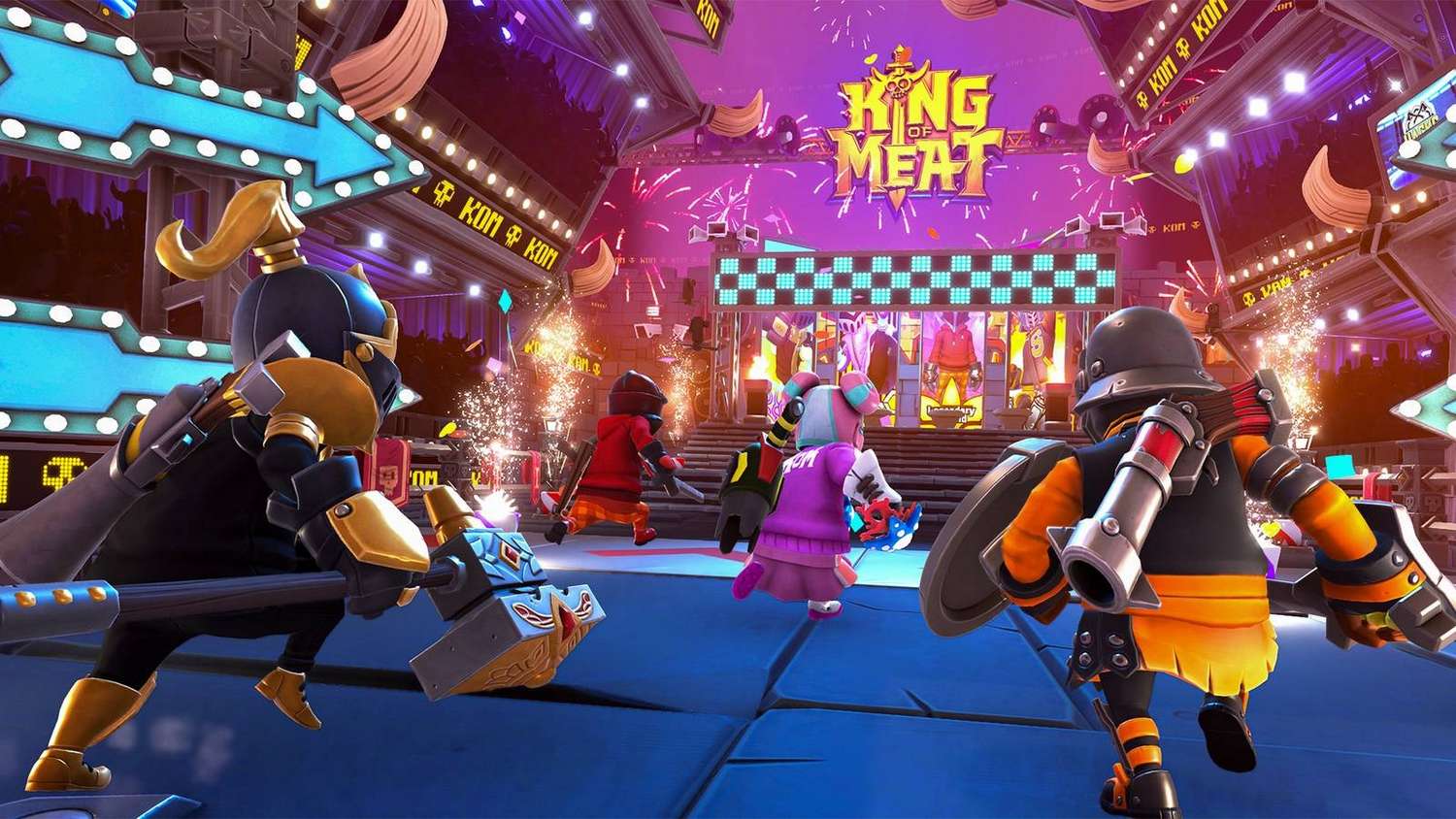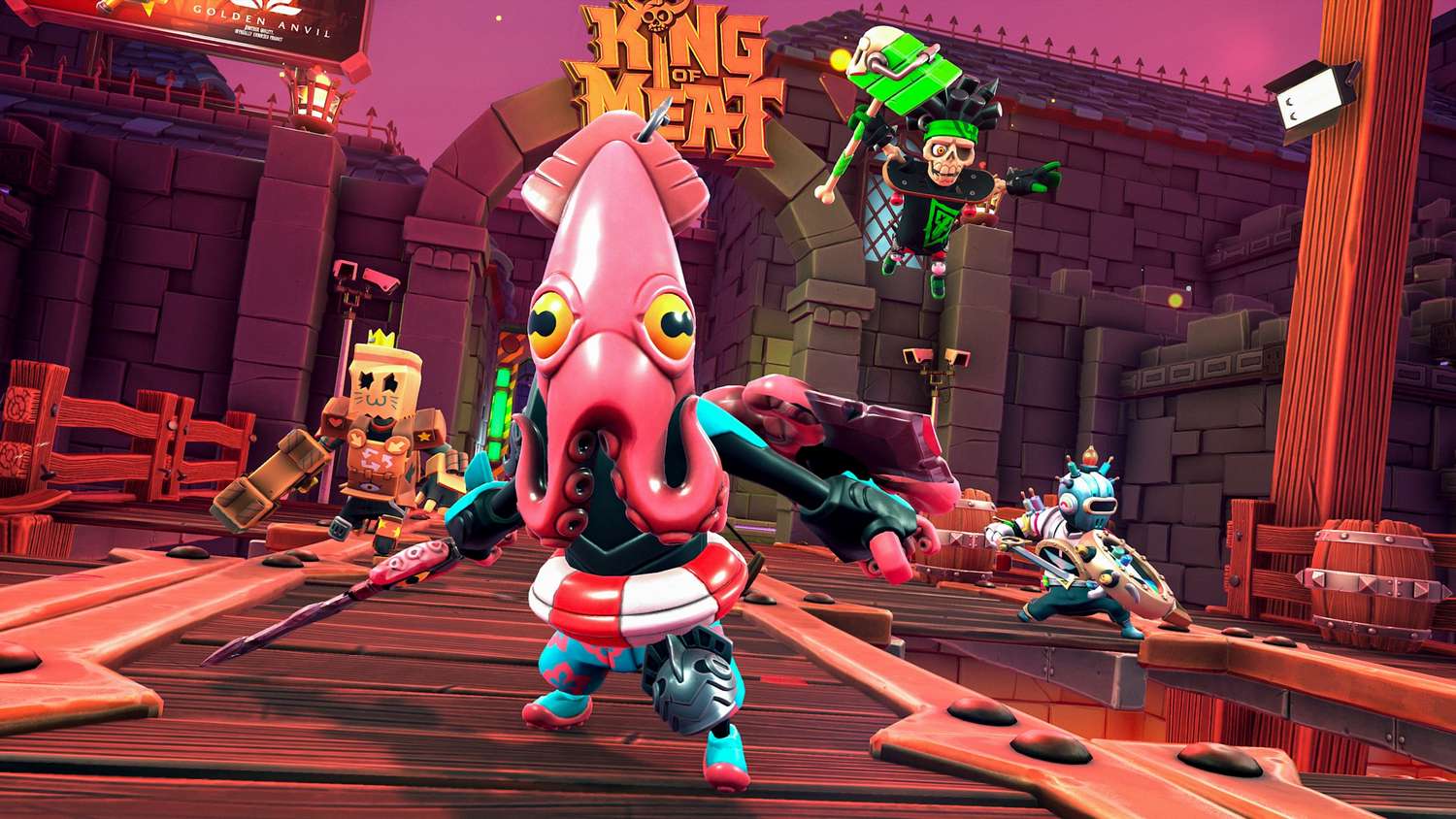King of Meat: Unpacking the Co-op Potential and the Road Ahead for a New Contender
Popular Now
 Geometry Dash
Geometry Dash
 Stumble Guys
Stumble Guys
 Fortnite
Fortnite
 Counter-Strike 2
Counter-Strike 2
 Minecraft
Minecraft
 Grand Theft Auto V
Grand Theft Auto V
 Among Us
Among Us
 Auto X Drift Racing 3
Auto X Drift Racing 3
 League of Legends
League of Legends
 NBA 2K24
NBA 2K24  In the ever-evolving landscape of multiplayer gaming, new titles constantly emerge, vying for a coveted spot in players’ digital libraries. Among the recent announcements, King of Meat has captured a particular flicker of interest, presenting itself with a premise that strongly suggests a powerful co-op gaming experience. However, the journey from promising concept to undeniable co-op hit is fraught with significant challenges, and for King of Meat to truly carve out its niche, it will require meticulous development, astute community engagement, and unwavering dedication to quality. This in-depth game review will explore the inherent potential of King of Meat as a team-based gameplay sensation and outline the critical hurdles it must overcome to achieve lasting success.
In the ever-evolving landscape of multiplayer gaming, new titles constantly emerge, vying for a coveted spot in players’ digital libraries. Among the recent announcements, King of Meat has captured a particular flicker of interest, presenting itself with a premise that strongly suggests a powerful co-op gaming experience. However, the journey from promising concept to undeniable co-op hit is fraught with significant challenges, and for King of Meat to truly carve out its niche, it will require meticulous development, astute community engagement, and unwavering dedication to quality. This in-depth game review will explore the inherent potential of King of Meat as a team-based gameplay sensation and outline the critical hurdles it must overcome to achieve lasting success.
The Core Proposition: A Meaty Co-op Challenge?
While specifics about King of Meat’s narrative and deep lore are still unfolding, early glimpses indicate a design philosophy centered on collaborative action within a challenging environment. The title itself suggests a brutal, perhaps visceral, struggle, likely against formidable foes or overwhelming odds, a perfect breeding ground for intense online co-op scenarios. Modern indie game potential often hinges on a unique twist or a refined execution of familiar mechanics, and King of Meat appears poised to deliver on the latter, leveraging the inherent fun of shared objectives and synchronized efforts.
Successful co-op games thrive on several pillars: distinct character roles, synergistic abilities, clear communication pathways, and a genuine sense of shared accomplishment (or failure). If King of Meat can craft a roster of characters with truly unique skill sets that complement each other – perhaps a tank, a damage dealer, a support, and a utility specialist – it could foster the kind of strategic depth that keeps players invested. Imagine scenarios where one player’s ability to ‘tenderize’ enemies makes them vulnerable to another’s ‘slicing’ attack, or a ‘butcher’ character capable of resource management while others focus on direct combat. Such thoughtful design is paramount for an engaging multiplayer experience.
The Promise of Immersive Gameplay and Replayability
Beyond character kits, the fundamental game mechanics and mission design will dictate King of Meat’s long-term viability. For a co-op hit, replayability is not just a bonus; it’s a necessity. This can be achieved through procedurally generated levels, dynamic objectives, escalating difficulty tiers, and a robust progression system that offers meaningful rewards and customization options. Players are constantly searching for experiences that offer hundreds of hours of enjoyment, and King of Meat must demonstrate a clear path to delivering this kind of value.
Furthermore, the visual and auditory presentation must contribute to an immersive gameplay world. While often a challenge for smaller studios, distinctive art direction and atmospheric sound design can elevate an otherwise solid gameplay loop into something truly memorable. The ‘King of Meat’ moniker itself opens doors for unique aesthetic choices, potentially leaning into grotesque fantasy, dark humor, or even a stylized, almost culinary-themed horror. Whatever direction the developers choose, consistency and quality will be key to capturing and retaining player attention in a crowded gaming market.
The Herculean Task: Why It’ll Have to Work for It
The path to becoming a recognized co-op hit is paved with good intentions but also littered with the remains of games that couldn’t quite make the cut. For King of Meat, several critical areas demand exceptional effort and execution:
- Technical Stability and Performance: This is arguably the most significant hurdle for any online game. Server stability, low latency netcode, and robust anti-cheat measures are non-negotiable. Bugs, crashes, or severe lag can sour a new release instantly and drive players away permanently. A smooth, responsive experience from day one is essential for positive word-of-mouth and initial player retention.
- Content Longevity and Post-Launch Support: Even the best gameplay loop eventually becomes stale without fresh content. King of Meat will need a clear roadmap for post-launch support, including regular content updates, new missions, characters, weapons, and enemies. The ability to adapt and respond to player community feedback will be crucial for sustained engagement.
- Game Balance and Progression Systems: Maintaining fair and challenging game balance across different character combinations and difficulty levels is a continuous process. Overpowered abilities, underpowered enemies, or a grindy progression system can quickly diminish enjoyment. Developers must be vigilant, utilizing analytics and player input to make timely adjustments.
- Community Building and Communication: Transparency from the developers regarding development progress, challenges, and future plans builds trust. An active presence on social media, forums, and Discord can foster a loyal player community that feels heard and valued. This community will be the backbone of the game’s long-term success.
- Standing Out in a Crowded Market: The gaming industry is saturated with excellent co-op titles, from established franchises like Borderlands and Deep Rock Galactic to newer indies constantly pushing boundaries. King of Meat needs a truly unique selling proposition – something beyond its core mechanics – that makes it distinct and memorable. This could be its specific tone, its narrative, a particular gameplay twist, or an unparalleled level of polish.
- Monetization Strategy: How King of Meat approaches monetization will also impact its reception. A fair and respectful model, whether it’s a one-time purchase with free content updates or a well-implemented battle pass system, is vital. Aggressive microtransactions can quickly alienate potential players.
 The Path to Critical and Commercial Success
The Path to Critical and Commercial Success
The developers of King of Meat face a demanding yet potentially rewarding journey. The inherent appeal of a well-crafted co-op game is immense, capable of fostering deep social connections and unforgettable shared moments. To capitalize on its significant indie game potential, the development team must prioritize robust technical foundations, a commitment to ongoing content and balance updates, and an open dialogue with its burgeoning player community.
A focus on innovation within its core mechanics, coupled with a deep understanding of what makes team-based gameplay truly compelling, will be the ultimate determinants of its fate. If King of Meat can address these challenges head-on, delivering a polished, engaging, and continuously evolving multiplayer experience, it stands a strong chance of becoming not just another release, but a beloved fixture in the pantheon of successful online co-op games. The potential is undeniable; the execution will be everything. The industry, and players alike, will be watching to see if King of Meat can indeed carve out its path to glory, or if it will simply become another forgotten cut.







 The Path to Critical and Commercial Success
The Path to Critical and Commercial Success